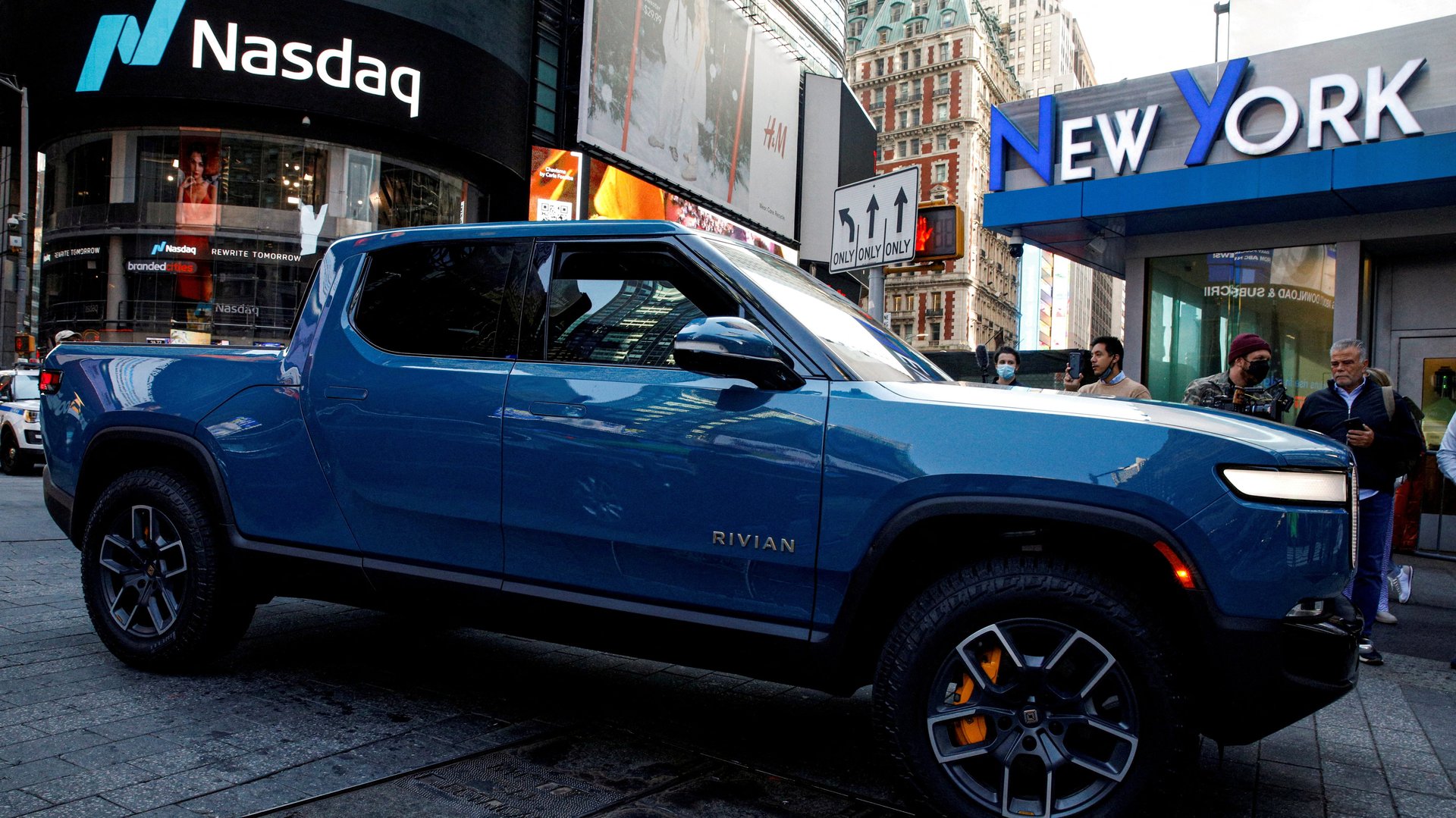Why Rivian tried to charge customers an extra $20,000 for pre-orders
Electric vehicle (EV) maker Rivian reversed course on a price increase yesterday (March 3) that would have charged customers 20% more than the amount originally listed for their cars. Some Rivian customers canceled their orders after seeing that they would have to pay $10,000 to $20,000 more than expected.


Electric vehicle (EV) maker Rivian reversed course on a price increase yesterday (March 3) that would have charged customers 20% more than the amount originally listed for their cars. Some Rivian customers canceled their orders after seeing that they would have to pay $10,000 to $20,000 more than expected.
In a letter to customers, Rivian CEO RJ Scaringe said the decision “broke the trust we have worked to build with you,” and that the original price will be honored on Rivian pre-orders made before March 1.
While Rivian’s blockbuster IPO briefly placed its market cap ahead of both Ford and GM in November, the EV maker’s stock has dropped by 50% since January as it battles the same supply-chain constraints affecting the rest of the automotive industry.
Rivian delivered fewer than 1,000 cars last year
The electric truck and SUV maker first began taking pre-orders for its cars in 2018, and soon after, gained financial support from major backers including Amazon, which is waiting on an order of 100,000 Rivian electric delivery vans.
But Rivian had delivered just 42 cars to customers when it filed for an IPO in October and fell nearly 200 vehicles short of its production target last year, citing supply chain constraints at its new Normal, Illinois factory. The car maker delivered 920 vehicles in total last year.
Customers satisfied with Rivian’s decision to walk back its price increase may still have to wait another year to get their cars. In December, the EV maker said they won’t be able to deliver pre-orders to some customers until 2023.
The costs of auto production have risen
As is the case for nearly all automakers, it’s more expensive for Rivian to produce cars today than it was prior to the covid-19 pandemic. “Since originally setting our pricing structure, and most especially in recent months, a lot has changed,” Scaringe said, with the cost of everything from semiconductors to sheet metal to seats going up.
The average price of a new car is 23% higher than it was when Rivian first started taking pre-orders, according to Kelley Blue Book data.
At least one of Rivian’s major rivals took note of the price increase this week, as Tesla’s Elon Musk speculated about its potential effect in a Twitter reply.